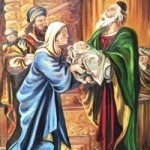Circumcision: improving God’s work – Tazria
 Among the detailed laws in the sidra comes a reminder of the duty of circumcision (Lev. 12:3), which had been previously promulgated early in Genesis.
Among the detailed laws in the sidra comes a reminder of the duty of circumcision (Lev. 12:3), which had been previously promulgated early in Genesis.
The Midrash Tanchuma (Tazria 5) reports that the Roman, Turnus Rufus, asked Rabbi Akiva a good question concerning this mitzvah. “If,” said the Roman, “your God desires circumcision, why does a child not leave its mother’s womb already circumcised?”
Rabbi Akiva was not without an answer. He went back to the story of creation, in which the sixth and seventh days (Gen. 1:26-2:3) record the creation of man in the Divine image and the establishment of Shabbat as the day of rest.
Both events, the climax of the work of creation, are later described as b’rit olam – “an everlasting covenant”.
This phrase is applied to Shabbat, in Exodus 31:16, which tells us la’asot et haShabbat – “to make Shabbat”. It is applied to man, in the law of circumcision in Genesis 17:7, where Abraham is told, “This is My covenant which you shall observe, between Me and you and your descendants after you: every male among you shall be circumcised.”
Rabbi Akiva told Turnus Rufus, “The reason why men are not born already circumcised is that the Almighty desired the individual co-operation of every Jew in the perfection of His creation by performing the mitzvah of b’rit milah.”
Similarly, when God says, “The Children of Israel shall keep Shabbat, to observe (literally, ‘to make’) Shabbat throughout their generations for an everlasting covenant”, He means us to make a personal effort to fulfil His purposes by turning Saturday into Shabbat.
It is our effort that completes God’s creation of the seventh day and indeed of the week itself.
Through the two mitzvot of circumcision and Shabbat, we affirm our belief in God, we recognise our human role in the world, and we assume our full human dignity as “partners with God in the work of creation”.



